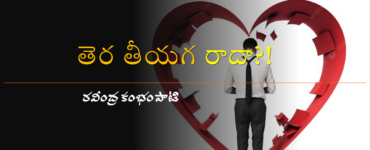 A few days ago I was moderating a panel discussion on the politics of translation at the Kolkata Poetry Confluence with eminent translators speaking on the subject. Several members of the audience were translators who were working or had already published translations. The event brought several poets who write in languages like Marathi and Tamil and whose poems were translated as part of the translation competition held by the Kolkata Poetry Confluence. The translations read at the event brought these poems in languages that I read thereby introducing me to new powerful voices.
A few days ago I was moderating a panel discussion on the politics of translation at the Kolkata Poetry Confluence with eminent translators speaking on the subject. Several members of the audience were translators who were working or had already published translations. The event brought several poets who write in languages like Marathi and Tamil and whose poems were translated as part of the translation competition held by the Kolkata Poetry Confluence. The translations read at the event brought these poems in languages that I read thereby introducing me to new powerful voices.
My reading during this period is a Telugu novel in English translation – Kakka by Vemula Yellaiah translated by K. Purushotham and Gita Ramaswamy published by Hawakal Publishers. The novel is a landmark in Telugu literature and is written in a colloquial Telugu dialect, one that is spoken by the Madiga community in Telangana. In the Afterword to the translation, the translators write that Kakka is the first Dalit novel from Telengana to be translated into English. The novel deals with the lived experience of the Madiga community, one that is steeped in years of abuse, exploitation, poverty, suffering and neglect.
The protagonist of the novel is Kakka and the novel deals with three generations, Kakka, his mother and grandmother. Elements of the culture of the Madiga community, of agrarian life, politics, and caste are important aspects of the novel. It is caste that regulates the lives of Kakka and his mother as they try to negotiate their lives. Even within his own community, Kakka has to deal with discrimination and abuse that make things difficult or him.
Kakka’s grandmother had to deal with slavery and exploitation, his mother faces similar problems.
Exhausted and spent working for the household, she squatted in the mud to catch her breath. She had become like a dried leaf. Would she get sleep tonight? It had been ages since she could.
This is how Ayyamma’s life is described. Kakka’s father had died of a scorpion’s sting while tilling the lands of the Reddy landlords. When his Ayyamma dies, his mother and he are alienated within the community. Kakka begins working on a farm as a labourer and is frequented beaten up and punished.
Kalemma decides not to let him go to work, she decides to sell her bit of land to free him from contract labour. She also has to face the advances of the men of her caste who excommunicate her and her son, Kakka. Her brother in law who has a stake in the property tries to seduce her and when she refuses he hatches a plan so that the villagers turn against her. Kakka decides to solve this by getting his mother married.
The young Kakka begins to learn the madigirkam and plans of playing it for the landlords Kakka works hard to master the madigirkam, he also learns tanning, making and mending sandals and making other things with leather. However, he is discriminated against this, what he believes is his caste identity. The discrimination he faces within his own caste leaves him humiliated.
The Sudras and landlords attacked the Madigas all of a sudden; they broke their drums, they beat the Madiga men and women indiscriminately and thrashed the children and youth as they screamed and wailed. The knees of the Madigas bled and their tears dripped blood.
The novel brings in several incidents and events that highlight the plight of Kakka and his family and community. The exploitation, humiliation, harassment and troubles they face on a daily basis are vividly revealed in the novel. There is no justice for these oppressed people. The landlords make Paakeerthatha the village headman without his knowledge. They just use him for their own ends and make him sign on a blank sheet and use that to lodge a complaint in the police station against the madigas. Pakeerthatha is a member of the community and someone who helps Kakka. Unable to bear the harassment Pakeerthatha commits suicide. As he gets ready to play the lead role in a street play Kakka is taken away and brutally dealt with. The play is that of the story of Mahisasura, a story of the victory of good over evil. When he is questioned, feeble, weak and in great pain, Kakka says,
O Sir, the story of my village too is like that of the screenplay. I don’t know whether there was really a battle between the gods and the demons, but a battle has been taking place between the patels and us ever since childhood.
The novel ends with Kakka speaking about oppression, about humiliation and about how all they want is a place of their own, some land to survive on and live.
*









మొత్తం నవల జీవితాన్ని మనిషులకు ఉన్న సర్వ రోగ నివారిని పట్టిచ్చిన పరిశోధనాత్మక విషయ వివరణ నచ్చింది కృతజ్ఞతలు